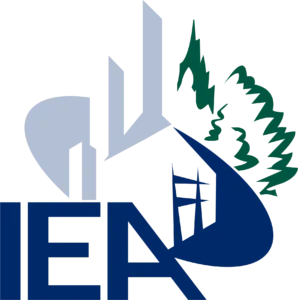CRISIS MANAGEMENT CONSULTING
We help you prepare for when the unexpected happens
Emergency preparedness is a critical responsibility for schools and businesses and is essential to providing a healthy learning and working environment for building occupants. For example, at public schools in Minnesota, the state statute requires all schools to adopt a crisis management plan and develop school-specific policies that address emergencies or crises such as natural disasters, man-made disasters, and school violence.
While many schools and businesses acknowledge the importance of having an emergency preparedness plan, oftentimes the crisis team is unfamiliar with where to begin developing and implementing a facility-specific plan. Our crisis management consultants can help develop a crisis management plan and be part of your crisis team to develop a program and training that meets your facility’s unique challenges.

OUR CRISIS MANAGEMENT TRAINING AND MANAGEMENT SERVICES
Assisting your facility plan for a crisis
IEA can assist your school or business in developing emergency plans and provide crisis management training to ensure the staff and building occupants know how to follow the procedures.
IEA helps organizations prepare for unexpected events by developing a comprehensive crisis management plan.
- Stakeholder Engagement: IEA will meet with key personnel across your organization to understand potential risks, communication needs, and decision-making hierarchies.
- Best Practices Review: We will analyze industry best practices and relevant regulations to ensure your plan adheres to the latest standards.
- Staff Responsibility Allocation: Clear roles and responsibilities will be assigned to staff members for effective crisis response. This includes identifying a crisis response team and outlining communication protocols.
The final plan will be a tailored document outlining procedures for various crisis scenarios, ensuring a swift and coordinated response when needed.
Our Facility Vulnerability Assessment consulting services provide a comprehensive evaluation of your physical security posture. This service identifies and prioritizes potential weaknesses across critical areas to enhance your facility’s overall security. Key areas of the assessment include:
- Building Access Control: We examine physical access points, assess the effectiveness of existing access control systems (key cards, security fobs), and review protocols for granting and revoking access.
- Critical Infrastructure Protection: We audit the security measures in place for vital systems such as power, water, and IT infrastructure.
- Visitor Management: We evaluate visitor screening procedures, sign-in protocols, and visitor badge management systems to ensure proper tracking and access limitations.
- Emergency Communications: We assess the effectiveness of your emergency notification systems (mass notification systems, fire alarms), communication plans, and procedures for ensuring clear and timely dissemination of critical information during emergencies.
- Drills and Training: We evaluate the frequency and effectiveness of your current drills and training programs for staff in responding to emergencies such as fire, natural disasters, or security breaches.
By undergoing a Facility Vulnerability Assessment, you gain valuable insights to strengthen your security measures, safeguard your assets, and create a safer environment for staff, visitors, and occupants.
Prepare your team to respond effectively in a crisis with immersive Crisis Simulation Training. This customizable program allows staff to rehearse your crisis management plan in a realistic and controlled environment, exposing strengths and weaknesses in your response procedures.
Key Benefits:
- Reinforce Crisis Management Plan: Staff will thoroughly understand their roles and responsibilities outlined in the plan, fostering a coordinated response.
- Practice Critical Skills: Participants will have the opportunity to practice essential crisis response skills such as decision-making under pressure, clear communication, and effective problem-solving.
- Identify Gaps and Issues: The simulation will reveal areas where your plan or staff training needs improvement.
- Scalable Training: The program can be tailored for large groups or smaller crisis response teams, ensuring all essential personnel receive valuable training.
- Law Enforcement Participation (Optional): We can coordinate participation from local law enforcement to ensure a realistic interaction and communication flow during the simulation.
Ensure swift response in emergencies with our Emergency Response Mapping consulting service. IEA creates clear and concise digital maps that empower informed decision-making during critical situations. Our maps will visually represent crucial information for your emergency response plan.
Key Features:
- Evacuation Routes & Severe Weather Shelters: Clearly designated evacuation routes will guide occupants to designated safe havens during emergencies. We’ll also identify and map severe weather shelters for various locations within the facility.
- Fire & Life Safety Devices: The location and type of fire extinguishers, fire alarms, and other life safety devices will be clearly marked for easy identification and access.
- Utility Shut-off Points: Our maps will pinpoint the location of utility shut-off valves for gas, water, and electricity, enabling swift action to minimize damage during emergencies.
- Reunification Site Plans: Designated reunification sites for families and loved ones will be mapped to facilitate post-incident regrouping.
Elevate your organization’s public voice and empower your team to confidently navigate media interactions with our comprehensive Media and Communications Training program. We offer a range of customizable training modules designed to equip your team with the skills and strategies needed to succeed in today’s dynamic media landscape. Key areas of focus include:
- Effective Communication Techniques: Craft clear, concise, and compelling messages that resonate with your target audience.
- Media Interview Skills: Learn to confidently deliver your key messages and manage challenging media inquiries.
- Crisis Communication Strategies: Develop the ability to effectively communicate during crisis situations and mitigate reputational risk.
- Public Speaking Techniques: Master the art of presenting with confidence and clarity, whether delivering press conferences, presentations, or speeches.
- Social Media Engagement: Develop strategies to leverage social media platforms to amplify your message and engage your audience effectively.
When disaster strikes, having a trusted partner by your side can make all the difference. Our Real-Time Crisis Response and Recovery Consultation services provide comprehensive support throughout every stage of a crisis, ensuring swift and effective response and a smooth path to recovery.
Our Approach:
- Tailored Strategies by Incident: We understand that each crisis is unique. Our experienced consultants will work closely with you to develop a customized response plan specific to the nature of the incident, minimizing disruption and maximizing recovery efforts.
- On-the-Ground Support: Our team will be there with you, on-site or virtually, providing real-time guidance and assistance in managing the crisis situation. We’ll help coordinate with emergency responders, assess damage, and ensure the safety and well-being of your personnel.
- Crisis Communications Management: Effective communication is paramount during a crisis. We’ll craft clear and consistent messaging for internal and external audiences, mitigating reputational risks and fostering trust with stakeholders.
- Business Continuity Implementation: We’ll help you activate your business continuity plan, ensuring critical operations remain functional and downtime is minimized. We’ll guide you through recovery procedures and work to get your organization back on track as quickly as possible.
Items within Gap Analysis:
- Develop Compliance Calendar
Protect your business from environmental fines and reputational damage. Our environmental compliance gap analysis service helps you identify areas where your operations may not align with current regulations.
What We Do:
- Assess your environmental management system against relevant laws and industry best practices.
- Identify gaps in your compliance procedures and record-keeping.
- Analyze your risk of non-compliance and potential environmental impact.”
- Hazardous Waste Licensing, Reporting, and Training
- Contingency Plan Development
Ensure your hazardous waste handling is compliant and minimize environmental risks. Our comprehensive hazardous waste service takes the complexity out of managing hazardous materials.
We Help You:
- Obtain Licenses: Secure the necessary permits and EPA ID numbers for your specific waste streams.
- Streamline Reporting: Simplify the process of submitting accurate and timely reports to regulatory agencies.
- Train Your Staff: Equip your employees with the knowledge and skills to handle hazardous waste safely and effectively.
- Develop Contingency Plans: Prepare a comprehensive plan for responding to emergencies involving hazardous materials.”
Items Within SARA:
- Tier II Reporting
- Toxic Release Inventory (TRI)
- Spill Reporting (MN Duty Officer, Federal Reporting)
Avoid confusion and penalties with our comprehensive SARA compliance support. The Superfund Amendments and Reauthorization Act (SARA) can be complex, but our team of experts helps you navigate the requirements with ease.
We Assist With:
- Tier II Reporting: Ensure accurate and timely submission of Tier II reports detailing your hazardous materials inventory.
- Toxic Release Inventory (TRI): Streamline the TRI reporting process for facilities that manufacture, process, or otherwise use listed toxic chemicals.
- Spill Reporting (MN Duty Officer, Federal Reporting): Provide guidance and support for reporting accidental spills to the appropriate authorities, including the Minnesota Duty Officer and federal agencies.
Items Within Storm Water:
- SWPPP
- Compliance with permit
- Permit renewals
- Initial permits
Protect your business and our waterways with our comprehensive stormwater compliance solutions. We take the hassle out of managing stormwater runoff and ensure your operations meet all regulatory requirements.
We Help You:
- Develop SWPPPs (Stormwater Pollution Prevention Plans): Create a tailored SWPPP that outlines specific best management practices (BMPs) to control stormwater pollution from your site.
- Permit Compliance: Navigate the permitting process for new or existing facilities, ensuring adherence to all permit conditions.
- Permit Renewals: Streamline the permit renewal process to avoid disruptions and maintain compliance.
- Initial Permit Applications: Guide you through the initial permit application process for new buildings or significant modifications to your property.
Items Within Storm Water:
- Initial SPCC plans
Safeguard your facility and the environment with our comprehensive SPCC plan development and compliance services. The Spill Prevention, Control, and Countermeasure (SPCC) Plan is crucial for facilities that store oil products. We ensure your plan meets all regulatory requirements and minimizes the risk of spills.
We Help You:
- Develop SPCC Plans: Create a customized SPCC plan that outlines specific measures to prevent oil spills, control leaks, and contain spills if they occur.
- Ensure Compliance: Navigate the SPCC regulations and ensure your plan meets all federal and state requirements.”
Items Within Industrial Wastewater:
- NPDES compliance
- Preparing and submitting applications for permit modification and renewal
- Managing permit data and submitting required reports
- Auditing operations for permit compliance
Ensure your industrial wastewater meets regulations and protect our water resources with our comprehensive compliance services. We simplify the complex world of NPDES permits and help you operate with peace of mind.
We Help You:
- NPDES Permit Compliance: Guide you through the National Pollutant Discharge Elimination System (NPDES) permitting process, ensuring your facility discharges wastewater within legal limits.
- Permit Modifications & Renewals: Assist with preparing and submitting applications for permit modifications or renewals to keep your operations compliant.
- Data Management & Reporting: Streamline the process of managing permit data and submitting required reports to regulatory agencies.
- Compliance Audits: Conduct thorough audits of your operations to identify and address any potential non-compliance issues.
Items Within Air Permitting and NESHAP:
- Option D
- Option C
- Air Emissions Monthly Recordkeeping
Ensure your facility operates within legal limits and minimizes air emissions with our comprehensive air permitting and NESHAP compliance services. We guide you through the permitting process and help you maintain compliance with the National Emission Standards for Hazardous Air Pollutants (NESHAP).
We Help You:
- Air Permitting: Assist with obtaining the necessary air permits for your facility, including Option D and Option C permits.
- NESHAP Compliance: Develop and implement a NESHAP compliance plan to ensure your facility meets emission standards for hazardous air pollutants.
- Air Emissions Recordkeeping: Streamline the process of maintaining accurate and up-to-date monthly records of air emissions, as required by your permit.
Safeguard your indoor air quality and protect human health with our vapor intrusion investigation and mitigation services. Vapor intrusion occurs when harmful vapors from contaminated soil or groundwater seep into buildings. We identify potential risks and implement solutions to ensure a healthy environment.
We Help You:
- Investigate Potential Threats: Conduct thorough investigations to assess the risk of vapor intrusion at your property.
- Identify Contaminants: Analyze soil and air samples to pinpoint the presence of harmful vapors.
- Develop Mitigation Plans: Design and implement effective mitigation systems to prevent vapors from entering your building.
- Improve Indoor Air Quality: Ensure a safe and healthy environment for occupants.

